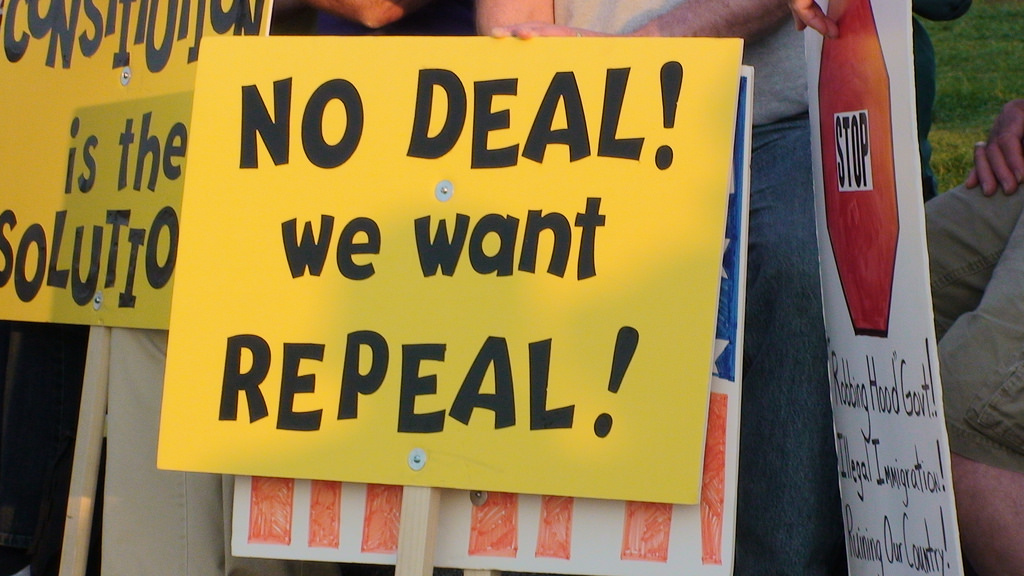The US healthcare system puts the fear of God into many Brits, especially those who are disabled or chronically ill and deal with healthcare providers on a regular basis. The thought that your treatment is allowed (or not allowed) on the basis of a decision by an insurance company rather than a doctor is bewildering, and the cost of care seems extortionate. Medication costs so much more in the US than most other countries, and patients who are offered assisted suicide because it is cheaper than cancer treatment prove we have everything to fear.
And that is for those who are able to get insurance coverage. For many, until the Affordable Care Act (ACA, sometimes known as Obamacare) came into force, the fact that they were already unwell and had pre-existing conditions meant that they could not get insurance coverage at all. Bankruptcy was often the only answer until ‘Obamacare’ was introduced, which helped at least some of those who had been excluded from insurance coverage previously.
This is why the repeal of the Affordable Care Act will be a horrific move for many vulnerable Americans who are unable to get insurance coverage through their jobs or independently. Self-employed people, for instance, or those who are out of work, will really struggle to find insurance if they have already seen a doctor about a condition they have. The loss of the ACA, which was a saviour to so many, will have devastating results for those who need it most.
Janel George, director of Federal Reproductive Rights and Health at the National Women’s Law Center, told Broadly how the repeal of the ACA would negatively impact women and LGBT people in particular. Events like previous pregnancies and transition surgeries for trans people could be classed as pre-existing conditions and used as an excuse to deny people insurance coverage, and women were routinely charged more than men prior to the ACA. Without the ACA, insurance companies will not be obliged to cover the costs of contraception.
Healthcare in the UK
It makes me ever so grateful that we have the NHS and yet this wonderful institution, which has supported British people for decades, is creaking under the strain of winter illnesses and underfunding. As it is quietly privatised, the lack of government funding really shows, presumably to leave us with a situation where we are glad of the private providers coming in to save the day. As Noam Chomsky put it, “That’s the standard technique of privatization: defund, make sure things don’t work, people get angry, you hand it over to private capital.”
The NHS does not need to fail but, as it is continually under resourced, it is struggling. Dedicated staff do their jobs but find they are unable to do anything about the queues of patients on trolleys in the corridor.
Cuts to frontline services, especially mental health secondary care services, are naturally having an impact on emergency services and GP provision, too, as people find it impossible to access mental health support through the community.
The impact of populism on healthcare provision
Many Americans are celebrating the potential end of the Affordable Care Act, for reasons best known to themselves. The thought that people who are down on their luck will not be able to get healthcare coverage is apparently something to praise, while the rise of the power of insurance companies is to be enjoyed.
For a country that prides itself on Christian values, this is very hard to comprehend. It seems the more people shout about their religious beliefs, the less they apply the lessons their church’s founder would have supported.
Even recipients of Obamacare are celebrating its demise, when they mistakenly believe that their Affordable Care Act coverage is unrelated to the bill being repealed in the corridors of power.
This is why it is dangerous to base healthcare policy on the opinions of uninformed members of the public, however numerous, as opposed to experts who provide or receive services. It is why science and research have to be at the forefront of the care that is provided, not rumour or bigotry or misinformation.
With Trump at the helm, this is proving to be a particular risk, as he has already appointed an anti-vaccine advocate to head a committee on the safety of vaccines. People who are sceptical about vaccines have inadvertently – and irresponsibly – encouraged an increase in cases of vaccine-preventable diseases, all because of a mistaken theory that vaccines lead to autism, which has been unambiguously disproven by scientists many times over. With Robert F. Kennedy Jr now in talks with Trump, those who would prefer to risk their child’s life than risk autism, even now we can be 100% confident that there is no vaccine-autism link, are getting a voice in a position where they should be unequivocally silenced.
No matter how many times medical authorities promise that vaccines save lives, and no matter how many times healthcare professionals express the fact that the NHS needs adequate funding if it is to survive, the voices of dissenters are considered to be an equal force and an important ‘balance’ to the words of the professionals. The fact is that vaccine scientists know more than people with a degree in watching scaremongering YouTube videos, and doctors on the frontline know more than the Prime Minister, about the investment that healthcare needs.
Photo: Creative Commons

